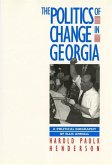Historian and former university president Sheldon Hackney recounts how he became an unwitting combatant in the Culture Wars when his nomination to become President Bill Clinton's chairman of the National Endowment for the Humanities came under fire from right-wing conservatives. Hackney meticulously describes the background of ideological maneuvering that was behind not only the attacks on him but also the fierce campaign to bring down Clinton. He says, "I believe my story illustrates how the Culture War and the current media environment combine to polarize discussion until the public has no chance to understand complex issues. Not only are moderates trampled underfoot, but the great gray areas where life is actually lived, the areas of ambiguity and tradeoffs between competing values, are rendered toxic to human habitation. This is not healthy for a democracy."
Hinweis: Dieser Artikel kann nur an eine deutsche Lieferadresse ausgeliefert werden.
Hinweis: Dieser Artikel kann nur an eine deutsche Lieferadresse ausgeliefert werden.








